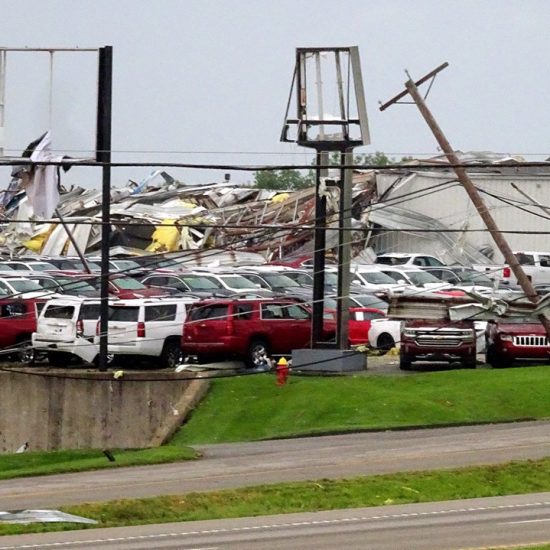Our culture seems to have shelved “and” in favor of “or.”
 Doyle SagerLiberal or conservative. Prolife or pro-choice. Gun rights or gun control. Let’s be honest: Polarization sells more news (and more politics) than consensus.
Doyle SagerLiberal or conservative. Prolife or pro-choice. Gun rights or gun control. Let’s be honest: Polarization sells more news (and more politics) than consensus.
Elton Trueblood once wrote that the most important word in the Bible is “and.” A book was published recently, highlighting the writings of a revered 20th-century Baptist ethicist, T.B. Maston. The name of the book is Both-And.
When extreme positions drive the conversation, many of us feel left out. Someone has wisely pointed out that a pond’s depth is in the middle; the edges (extremes) are muddy — and shallow!
Try this experiment. Over the next few days, listen carefully to your own words and to the words of others. Note the assumptions. Are they either/or assumptions? In both public and private discourse, why not try out some both/and assumptions?
1. The sanctity of life — unborn and born. A consistent pro-life position calls for us to value all persons, whether in the womb or homeless, migrant, gay, elderly or incarcerated.
2. Support for law enforcement and support of citizens (especially the marginalized) who peacefully demonstrate. After the Ferguson, Mo., shooting, I made sure that our Sunday morning prayers included intercessions for both the police and those who were experiencing injustice.
3. Personal salvation and social justice. Over a century ago, Baptist leader Walter Rauschenbusch preached that both individuals and social structures need to be converted.
Read the Gospels carefully and notice that Jesus invited people into a deep, personal relationship with God and into God’s reign, where oppression, privilege and systemic evil are rooted out. In short, Jesus announced that God’s kingdom is to come on earth, and that kingdom has a new lord. His name, by the way, isn’t Caesar!
4. Commitment to Christ and respect for other religions. As a follower of Christ, I can stand on my faith confession, “Jesus is Lord,” without spewing hatred for other belief systems and their adherents. Isn’t it amazing how God is always bigger than the theological sandbox in which we happen to be playing?
5. Contemporary and traditional worship. I am not claiming one style is right for everyone. Nor am I suggesting how your church should handle this issue. I am simply asking us to see the value of both styles (and many others as well). Each has its place. Each speaks to different hearts.
It’s OK for you to have a preference. Just don’t enshrine that preference as divinely ordained.
6. A church that honors tradition and values innovation. Remember that Jaroslav Pelikan distinguished between traditionalism and tradition. He called traditionalism the dead faith of the living and tradition the living faith of the dead.
I’ve seen many churches mired in traditionalism. They are tired, imprisoned and dying. I’ve seen others so committed to innovation that they are rootless and shallow, acting as if nothing happened until they showed up.
True innovation has no authority unless it is rooted in the best of what has gone before. A survey of the Gospels will reveal that Jesus’ new teachings had deep roots in ancient Israel’s faith.
7. Local and global. Invariably, during one of our congregation’s mission emphases, someone will say, “There are so many needs here at home. We need to take care of our own first.” But the truth is, scripture commands us to do both (Acts 1:8).
The healthy church doesn’t make a distinction, but instead insists on and. Perhaps this is why Brian McLaren coined the phrase “glocal.”
As you give this “and” experiment a try, you will begin to notice other conversations which have been mistakenly reduced to the simplistic binary options of either/or. Remember the power of “and.” Remember the pond. Stay out of the mud. Don’t be shallow. Go deep.
Doyle Sager is senior pastor of First Baptist Church of Jefferson City, Mo.



